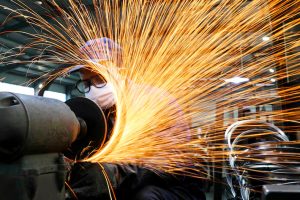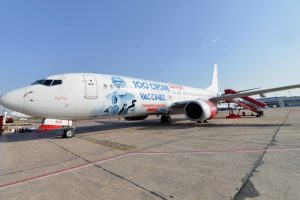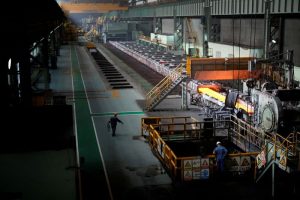Global energy major Royal Dutch Shell may build a biofuels plant in Singapore to meet the region’s rising demand for sustainable aviation fuels (SAF), the head of its downstream business said on Wednesday.
The proposed 550,000 tonnes per year project at Singapore’s Bukom Island could produce SAF to supply major Asian hubs such as Hong Kong International Airport and Singapore’s Changi, Shell downstream director Huibert Vigeveno told reporters.
“Many of the airlines are keen to talk to us,” he said. “I see a lot of growth in sustainable aviation fuel.”
Citing discussions with Asian airlines, including Singapore Airlines, Cathay Pacific, Japan Airlines and Nippon Airlines, he said the appetite for SAF was not just in Europe or the United States.
Ditching Fossil Fuel
As Shell seeks to move away from fossil fuels, in response to pressure for climate action from governments and some shareholders, it is already building a 820,000 tonnes per year biofuels plant in Rotterdam.
Shell is also working with European airline KLM to test the blending of synthetic fuels.
Globally, Shell aims to make about 2 million tonnes per year of SAF by 2025, although the renewable fuel accounts for less than 0.1% of today’s global jet fuel demand.
To transit to low-carbon fuel production, Shell has shut a crude distillation unit at Bukom, which reduced its refining capacity by half, Vigeveno said, despite a recovery in global refining margins.
Performance Chemicals
The proposed Singapore biofuels plant will also have flexibility to produce renewable diesel and bio-naphtha feedstock for petrochemicals, he said.
“The alternative is much more valuable,” he said, adding that Shell is focusing on higher-value products such as performance chemicals, bitumen and also lubricants, which provide a return on capital employed of more than 20%.
“Refinery margins have improved a bit, but they’re far from the levels they used to be,” Vigeveno said, adding the sector still had overcapacity.
Aviation is one of the most difficult forms of transport to decarbonise. Shipping, by contrast, he said had many fuel options, such as switching to liquefied natural gas, electricity, renewable diesel and, in the longer term, hydrogen, provided the infrastructure is put in place.
Vigeveno said hydrogen could be viable for shipping this decade.
- Reuters with additional editing by Kevin Hamlin
ALSO READ:
























